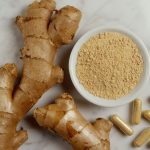
In the ABCs of vitamins, B12 is often overlooked. But it’s essential for the making of nerve and red blood cells, as well as DNA along with many other body processes. Adults and teens need just 2.4 micrograms a day, but you can fall short even on this small amount. You’re at particular risk of a B12 deficiency if you’re a vegetarian because animal foods, like meat and dairy, are the only foods that deliver it. If you have a health problem that affects nutrient absorption, like Crohn’s disease, have had bariatric surgery or take certain medications, you also run the risk. So do people over 50 because of changes in stomach acids. Common medications that can affect your body’s B12 levels: PPIs such as omeprazole (Prilosec) and lansoprazole (Prevacid), used for treating heartburn or GERD. H2 receptor antagonists such as famotidine (Pepcid) and ranitidine (Zantac), also used for treating those and other conditions. Metformin, the diabetes drug. A deficiency can develop slowly over time or come on rather fast. Possible warning signs include emotional or thinking problems, fatigue, weakness, weight loss, constipation, and numbness or tingling in hands and feet. These can also be symptoms of many other conditions, but it takes only a blood test to diagnose a B12 deficiency. If you don’t eat animal-based foods, you can boost B12 with fortified soy… read on >





























-300x200.jpg)







-300x169.jpg)
